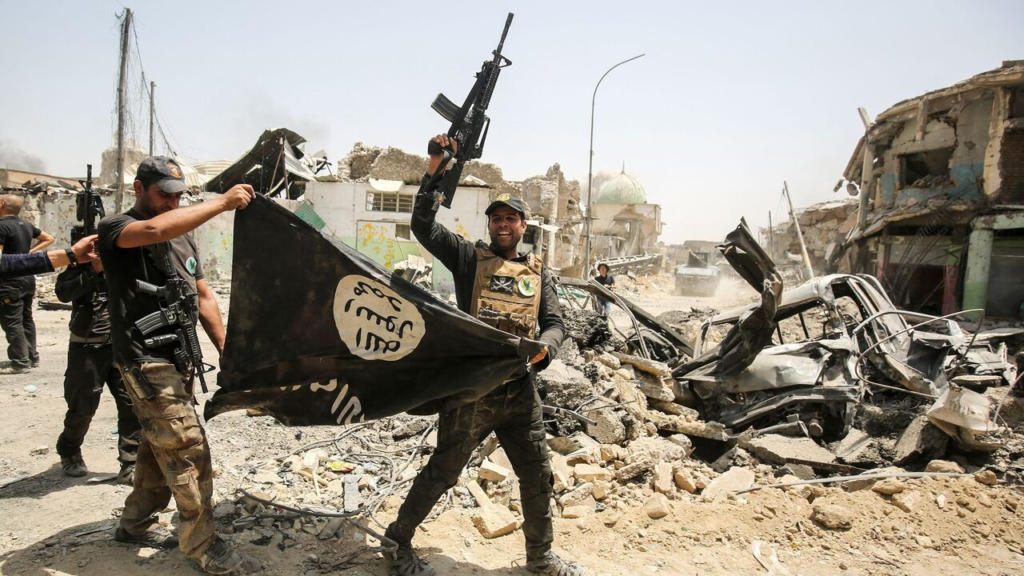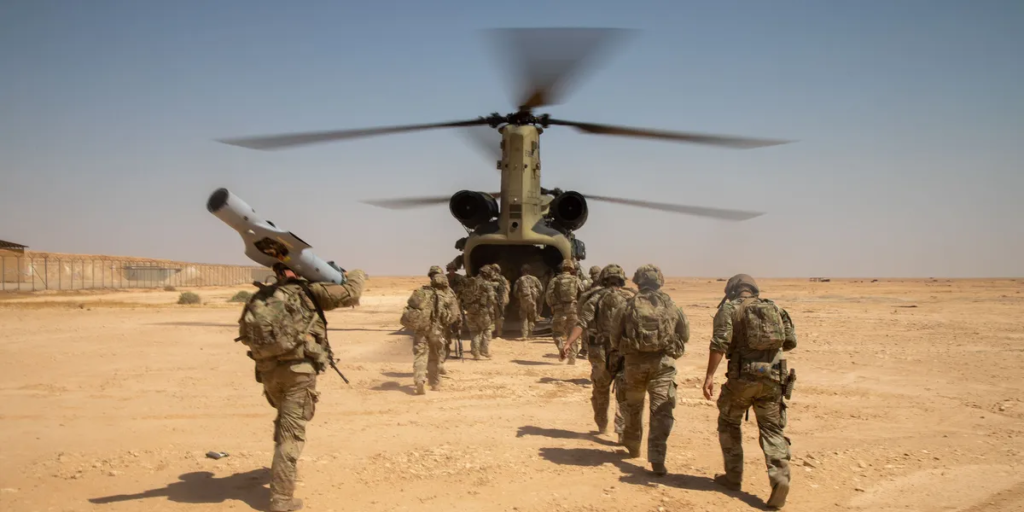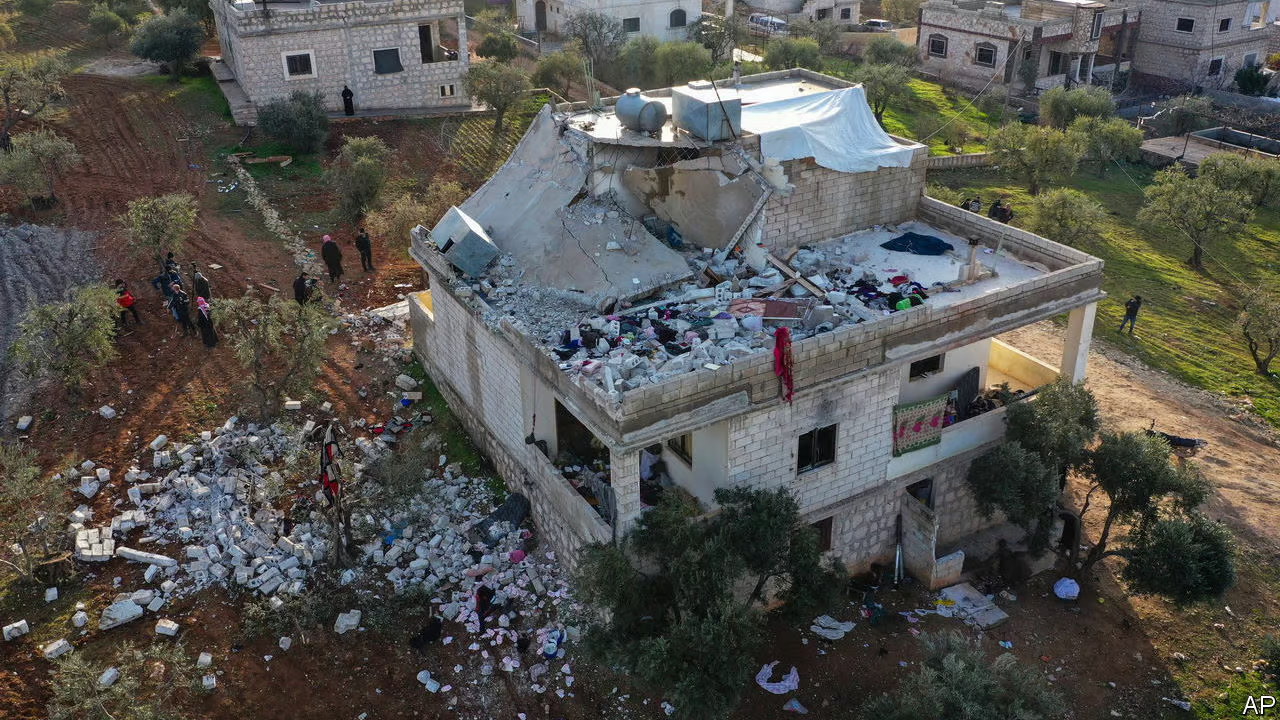Iraq has struck a major blow against the Islamic State (IS) militant group by killing its leader in Iraq, Jassim al-Mazroui Abu Abdul Qader, along with eight of the group’s senior officials.
This operation, led by Iraq’s counterterrorism forces and supported by international coalition intelligence, marks another key victory in Iraq’s ongoing battle to eradicate terrorism from its borders.
The success of this mission sends a clear message that Iraq remains committed to defeating the remnants of IS and ensuring long-term security in the region.
Islamic State’s Chief Killed: A Strategic Success
The military operation that led to the death of Jassim al-Mazroui Abu Abdul Qader was a significant triumph for Iraq’s Joint Operations Command. It was carried out in the Hamrin Mountains in Salahuddin province, a known hideout for IS operatives. Prime Minister Mohammed Shia al-Sudani praised the efforts of Iraq’s counterterrorism forces and national security service for their efficient execution of this complex mission.
Read : Iran Cargo Flight with Weapons for Hezbollah Turned Back Over Iraq
What set this operation apart was the collaboration with the international coalition forces, which provided crucial technical support and intelligence. This coordination was vital in pinpointing the exact location of Abu Abdul Qader and his senior leaders. The operation also resulted in the seizure of a large quantity of weapons, ammunition, and equipment, weakening the militant group’s operational capacity further.
Read : Iraq : An Innovator Of First Wheel And the First Seed plow
The significance of killing Abu Abdul Qader cannot be overstated. As a top leader of IS in Iraq, he was responsible for orchestrating attacks, coordinating with sleeper cells, and maintaining the group’s underground network. His death, alongside eight other senior leaders, has dealt a crippling blow to IS’s organizational structure in Iraq, making it more difficult for the group to regroup and mount significant operations in the future.
The Ongoing Fight Against IS
The defeat of IS’s territorial caliphate in Iraq in 2017 and in Syria in 2019 marked the end of the group’s control over large swathes of land. However, IS has continued to operate through sleeper cells and underground networks in both countries. These cells have carried out sporadic attacks, mainly targeting security forces and civilian populations in remote areas.
Iraq has been steadfast in its determination to eradicate the remnants of IS. Prime Minister al-Sudani emphasized that there is “no place for terrorists in Iraq” and vowed to continue pursuing them in their hideouts. The Iraqi security forces, in collaboration with international partners, have regularly conducted operations aimed at rooting out these sleeper cells and preventing IS from staging a resurgence.

The latest operation in the Hamrin Mountains is part of a broader effort to dismantle IS’s leadership and operational capacity. By eliminating key leaders like Abu Abdul Qader, Iraq is working to weaken the group’s ability to coordinate attacks and recruit new fighters. Additionally, by seizing weapons and other equipment, the security forces are disrupting IS’s logistical operations, making it more challenging for the group to sustain its remaining forces.
Despite these successes, the fight against IS is far from over. The group has proven resilient, with its members often retreating to remote and difficult-to-access areas like the Hamrin Mountains, where they can avoid detection and continue their activities. This is why ongoing intelligence sharing and technical support from international coalition forces remain critical in ensuring that Iraq can continue to effectively target IS leaders and sleeper cells.
U.S. Coalition Presence and the Future of Iraq’s Security
The killing of Abu Abdul Qader comes at a pivotal moment in Iraq’s relationship with the U.S.-led international coalition. In September, the U.S. and Iraq announced an agreement to wrap up the military mission of the coalition forces in Iraq by next year. This will involve the gradual departure of U.S. troops from bases they have occupied for nearly two decades since the 2003 invasion of Iraq.
The agreement to wind down the U.S. military presence in Iraq follows years of Iraqi officials calling for a reduction in foreign troop levels. With IS no longer holding territory, Iraqi leaders believe that their security forces are now capable of dealing with the remnants of the militant group on their own. This confidence is partly based on the success of operations like the one that killed Abu Abdul Qader.

However, the departure of U.S. troops raises questions about the future of Iraq’s security, especially in terms of the continued fight against IS sleeper cells. While the Iraqi government has expressed confidence in its ability to manage the security situation, the role of international coalition forces, particularly in providing intelligence and technical support, has been crucial in recent years.
As Iraq transitions to greater self-reliance in its fight against IS, it will need to continue strengthening its security forces and intelligence capabilities. The Joint Operations Command, which coordinates efforts between various branches of the military and security services, will be critical in ensuring that Iraq remains vigilant in the face of potential IS threats.
At the same time, the international community’s support remains important, even if direct military involvement is reduced. Iraq will likely continue to rely on intelligence-sharing agreements and technical assistance from coalition partners to ensure that it can effectively target and dismantle IS cells operating in remote areas.
The killing of Jassim al-Mazroui Abu Abdul Qader and eight other senior IS leaders represents a major victory in Iraq’s ongoing fight against terrorism. It underscores the Iraqi government’s commitment to eradicating the remnants of IS and securing long-term stability in the country. The successful operation, carried out with the support of the international coalition, highlights the importance of continued collaboration between Iraq and its partners in the global fight against terrorism.
As Iraq prepares for the eventual departure of U.S. coalition forces, it will need to strengthen its security infrastructure to ensure that it can continue to deal with the threat posed by IS sleeper cells. The death of Abu Abdul Qader is a significant step in the right direction, but the fight is far from over. Iraq’s security forces must remain vigilant, and international support will continue to play a key role in maintaining pressure on IS and preventing its resurgence.

